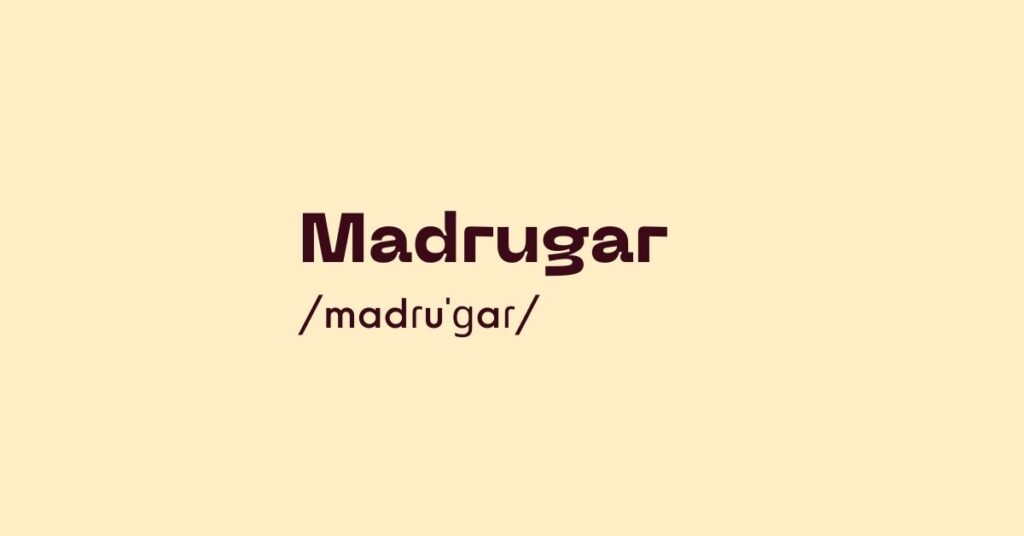Today’s Spanish word of the day is “madrugar”.
It’s a verb meaning to wake up early or to get up early.
It’s related to the word “madrugada”, which means “dawn”, so to “madrugar” essentially means to be up at the crack of dawn.
Example Sentences
Beginner
Here are some example sentences at beginner (A1/A2) level:
Yo madrugo todos los días para ir al trabajo.
I get up early every day to go to work.
Cuando voy de vacaciones, me gusta madrugar y disfrutar de la mañana.
When I go on vacation, I like to get up early and enjoy the morning.
Es difícil madrugar en invierno porque hace frío.
It’s difficult to get up early in the winter because it’s cold.
Intermediate
Here are some example sentences at intermediate (B1/B2) level:
Madrugar todos los días a las 6 de la mañana es una disciplina que me ha ayudado a ser más productiva.
Waking up every day at 6 AM is a discipline that has helped me to be more productive.
Mis abuelos siempre han madrugado desde que eran jóvenes. Es una costumbre que han inculcado en nuestra familia.
My grandparents have always gotten up early since they were young. It’s a habit they’ve instilled in our family.
Muchos estudios han demostrado que madrugar tiene beneficios para la salud física y mental.
Many studies have shown that waking up early has benefits for physical and mental health.
Advanced
Here are some example sentences at advanced (C1/C2) level:
Madrugar es mi pequeño acto de rebeldía diario, una forma de reclamar esos momentos de silencio y tranquilidad en un mundo que se mueve a toda velocidad.
Getting up early is my daily little act of rebellion, a way to claim those moments of silence and calm in a world that moves at breakneck speed.
Aunque sé que madrugar trae innumerables beneficios para mi salud y productividad, no puedo evitar sentir una profunda aversión hacia esta práctica.
Although I know that getting up early brings innumerable benefits for my health and productivity, I can’t help but feel a deep aversion towards this practice.

